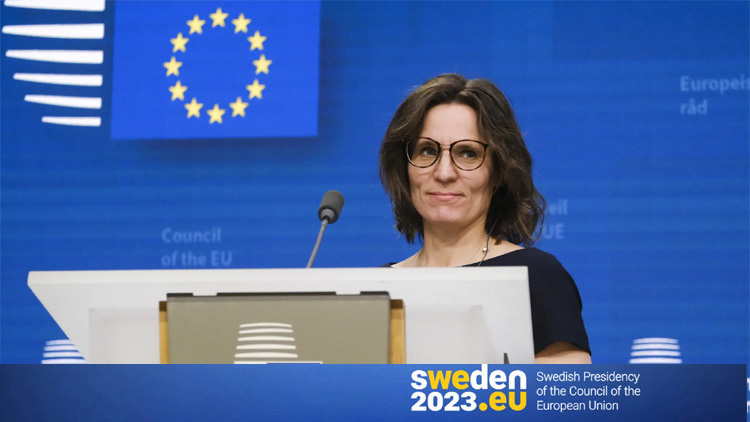Most important results from General Affairs Council meeting
On Tuesday 21 March, EU ministers met for the General Affairs Council meeting in Brussels. The agenda included preparations ahead of the European Council meeting on 23–24 March and the annual rule of law dialogue.
The General Affairs Council also adopted decisions related to EU-UK relations under the Windsor Framework.
At the initiative of the Swedish Presidency of the Council of the EU, long-term EU competitiveness has been added to the agenda of the March meeting of heads of state and government.
“We need to strengthen the EU’s competitiveness in areas such as trade and energy to meet the challenges facing Member States. This involves continuing to create better conditions for research, innovation and regulation,” says Sweden’s Minister for EU Affairs Jessika Roswall.
The Swedish Presidency had invited Ukrainian Deputy Prime Minister for European and Euro-Atlantic Integration Olha Stefanishyna to an informal lunch with the ministers. At the lunch, Ms Stefanishyna updated the EU ministers on reforms taken by Ukraine to comply with the Commission’s recommendations in connection with Ukraine being granted candidate status in June 2022.
EU–UK relations
At the meeting, the Council greenlighted main elements of the Windsor Framework, an important agreement that is part of the EU-UK Withdrawal Agreement. The Windsor Framework includes several practical solutions to the problems identified over the past two years regarding implementation of the Protocol on Ireland and Northern Ireland.
Rule of law dialogue
At the General Affairs Council meeting on 21 March, a country-specific discussion was held focusing on key developments in Slovakia and Finland. This concluded the first round of the rule of law dialogue. At the same time, the Swedish Presidency initiated a second round of dialogues with Belgium, Bulgaria and the Czech Republic. This is in line with the Swedish Presidency’s priority on democratic values and the rule of law. Rule of law dialogues have been conducted in a more structured form since 2020 to improve the common understanding of the rule of law in the EU.

